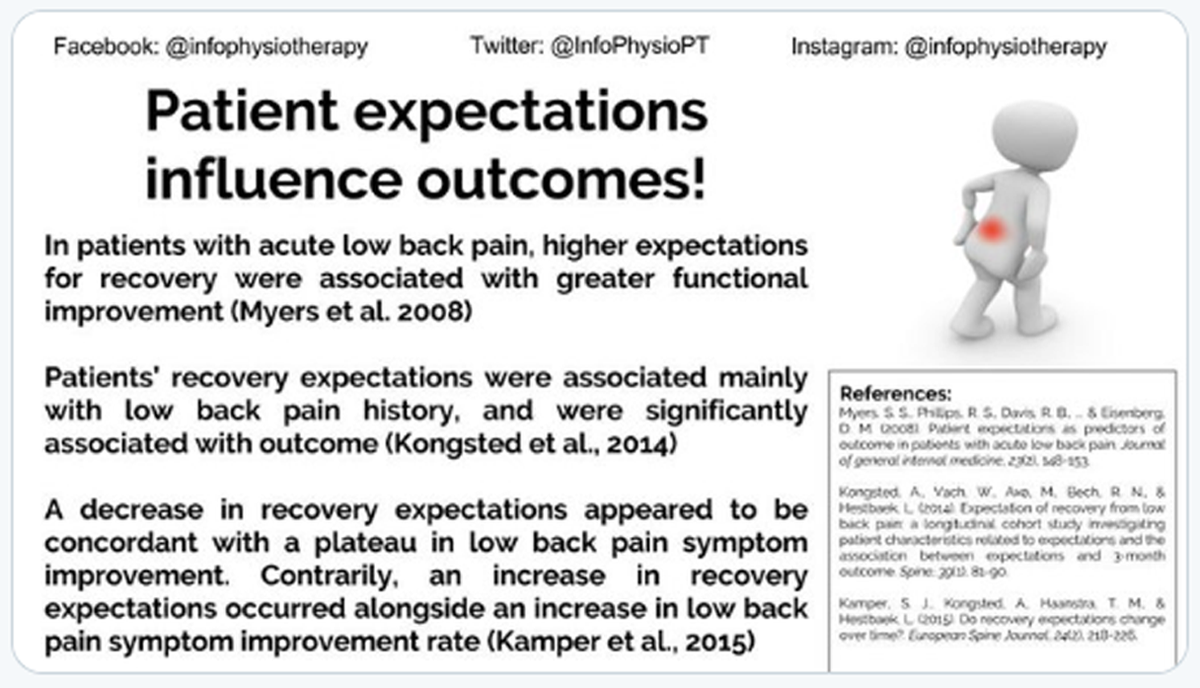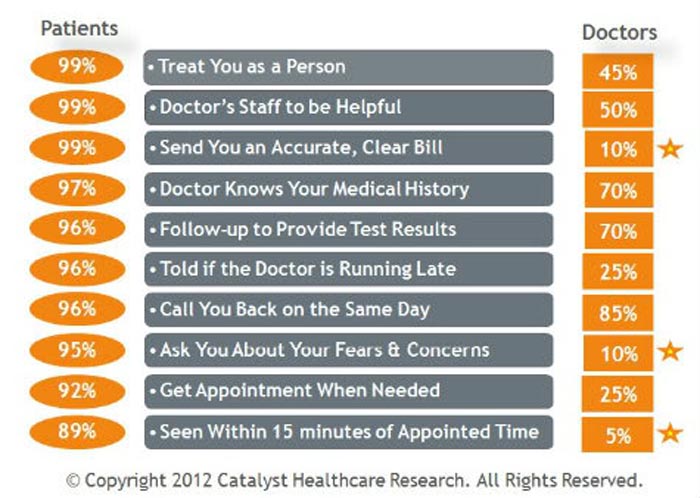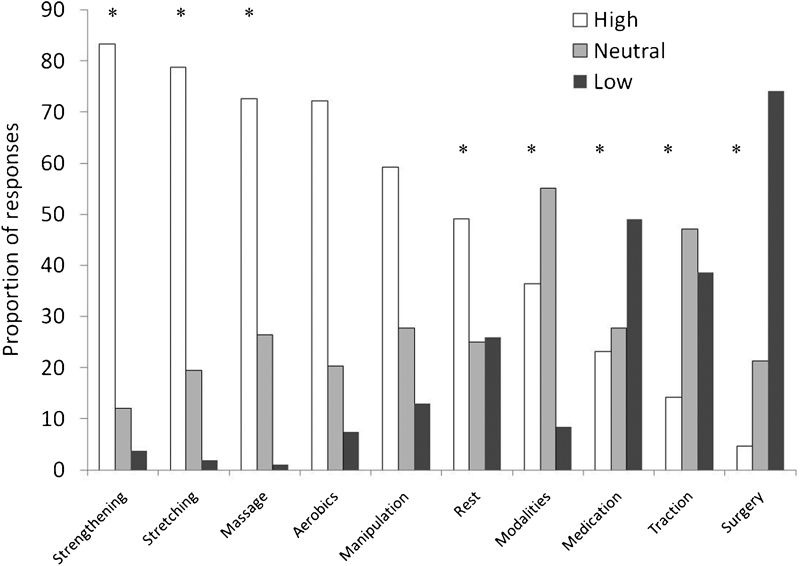Patient Expectations as Predictors of Outcome in Patients with Acute Low Back Pain
SOURCE: Journal of General Internal Medicine 2008 (Feb)
Samuel S. Myers MD, Russell S. Phillips MD, Roger B. Davis ScD, Daniel C. Cherkin PhD, Anna Legedza ScD, Ted J. Kaptchuk, Andrea Hrbek, Julie E. Buring ScD, Diana Post MD, Maureen T. Connelly MD, MPH & David M. Eisenberg MD
Department of Medicine,
Harvard Medical School,
Mount Auburn Hospital,
Cambridge, MA 02138, USA.
BACKGROUND: Few studies have evaluated the association between patient expectations for recovery and clinical outcomes, and no study has evaluated whether asking patients to choose their therapy modifies such an association.
OBJECTIVE: To evaluate the association between patients’ expectations and functional recovery in patients with acute low back pain (LBP), and to determine whether that association is affected by giving patients choice of therapy.
DESIGN AND PARTICIPANTS: A secondary analysis of a randomized controlled trial comparing usual care alone to usual care plus choice of chiropractic, acupuncture, or massage in 444 adults with acute LBP, lasting less than 21 days.
MEASUREMENTS AND MAIN RESULTS: Primary outcome was functional disability (Roland score) at 5 and 12 weeks.
There are more articles like this @ our:
Patients’ general expectations for improvement were associated with improvement in functional status (beta = 0.96, 95% CI = 0.56, 1.36). A 1-point increase in general expectations was associated with a 0.96-point improvement in Roland score. The association of expectation with outcome was 2-3 times greater in the usual care group than the choice group. However, these differences did not reach statistical significance.
CONCLUSIONS: In patients with acute LBP, higher expectations for recovery are associated with greater functional improvement. Eliciting patient expectations for improvement may be a simple way to identify patients with the highest (or lowest) likelihood of experiencing functional improvement. Incorporating questions about patient expectations in future trials may clarify the role of this important correlate of clinical outcomes.
KEY WORDS: expectations, preference, choice, low back pain, randomized controlled trial
From the Full-Text Article:
BACKGROUND
Prior research has documented intriguing associations between patients’ expectations for recovery and their clinical outcomes. [1–8] A systematic review of the literature on expectations of recovery found that 15 of 16 studies reported that positive patient expectations were associated with better health outcomes. [9]
Most studies evaluating the association between expectations and clinical outcomes have focused on relatively subjective outcomes. Patients with high expectations that acupressure bands would provide relief from chemotherapy-induced nausea reported more relief than those with low expectations, [10] And patients with benign prostatic hypertrophy who had positive expectations for surgery reported feeling better after surgery than patients with more negative expectations. [2]
Regarding functional outcomes, investigators found that general expectations for recovery were associated with functional ability after total joint arthroplasty. [11] Higher expectations of specific therapies, but not general expectations for improvement, were associated with functional improvement in patients with persistent low back pain. [4]
Because of its clinical relevance, and its relevance to future study design, it is important to expand our understanding of this association. Are patients who are generally optimistic about their recovery more likely to get better than patients who are more pessimistic? Are there sociodemographic or clinical factors associated with having high expectations? Are there other factors that modify the effect of expectations on outcome?
In this context, we performed a secondary analysis to evaluate whether there was an association between patients’ general expectations for recovery from acute low back pain (ALBP) and their functional outcomes. We also evaluated whether patients’ expectations of specific therapies were associated with their outcomes. In addition, we took advantage of a unique element of the parent study’s design to examine whether the effect of expectation on outcome was modified by asking patients to choose their therapy. Because one possible explanation for an association between expectation and outcome is that expectation is a component of the placebo effect, we hypothesized that this effect might be different among patients who chose their own therapy versus those who were prescribed therapy by their clinicians. To our knowledge, this question of a differential effect of expectations based on giving patients choice of therapy has never been studied.
SOURCE: Read the rest of this Full Text article now!






Leave A Comment